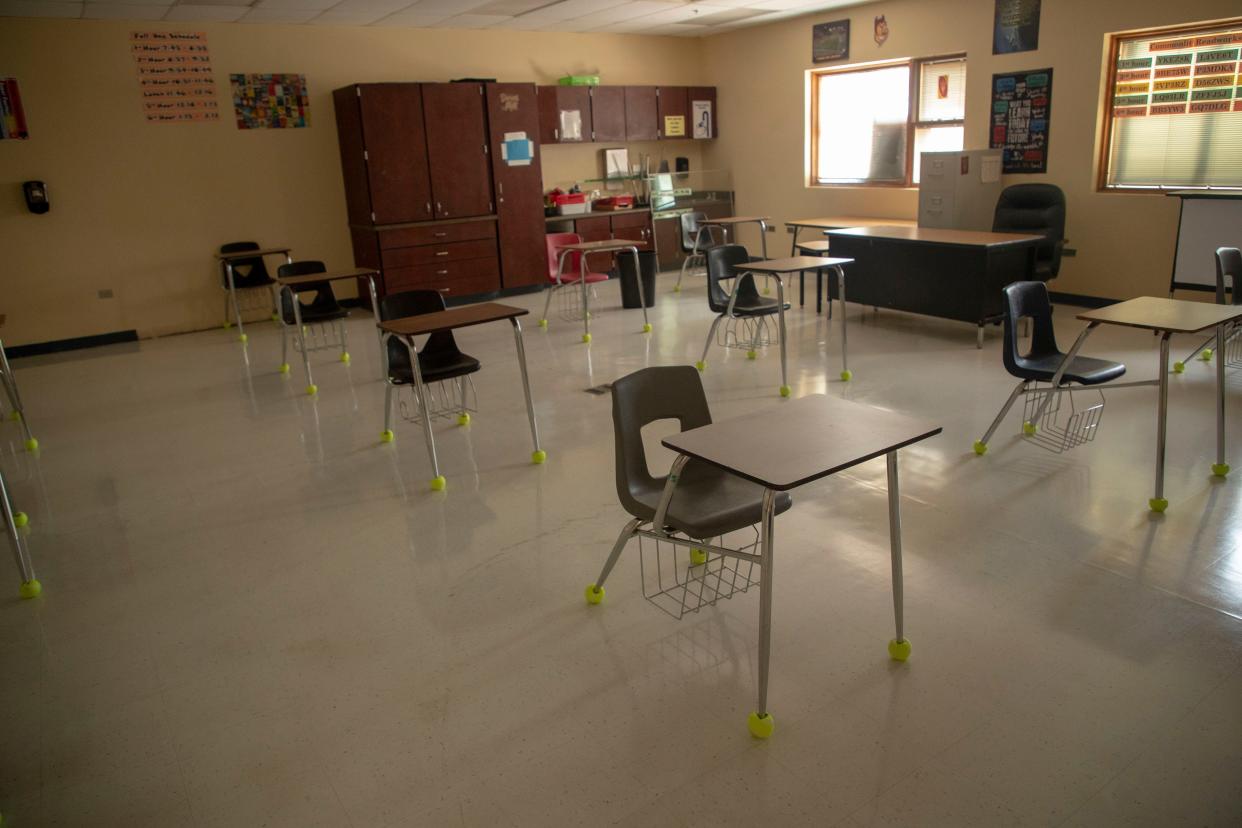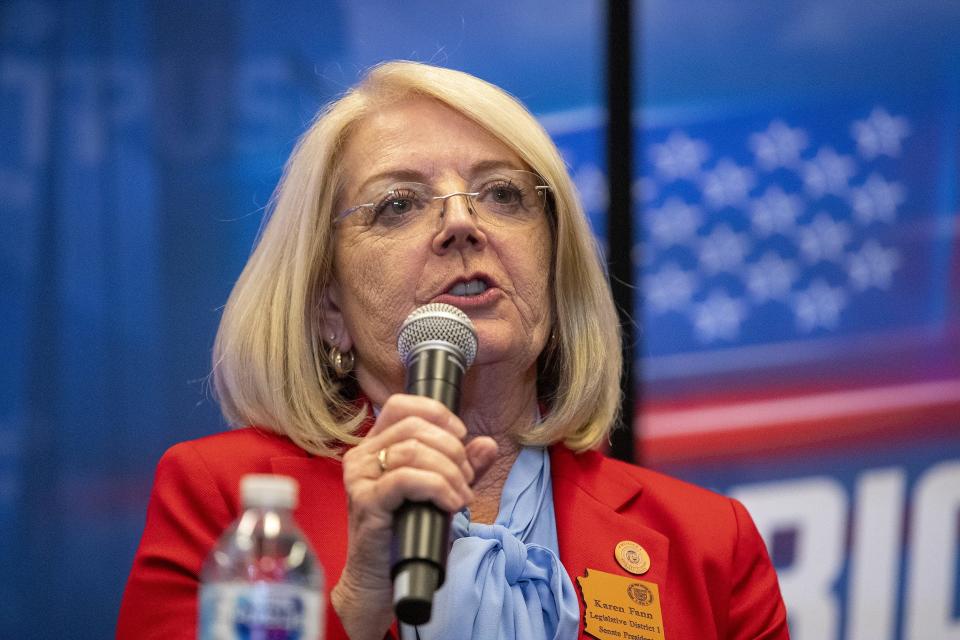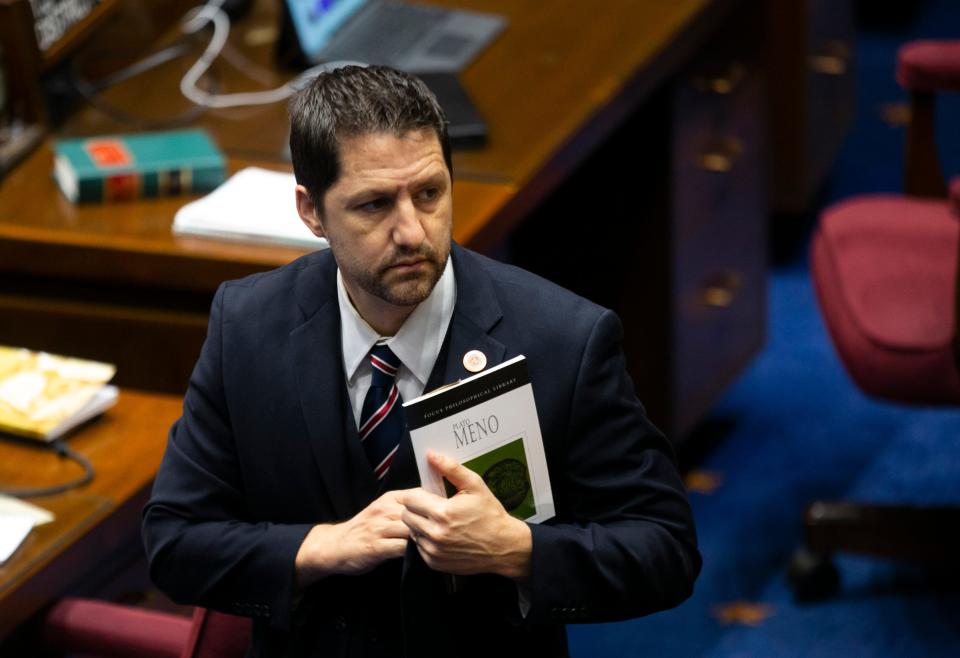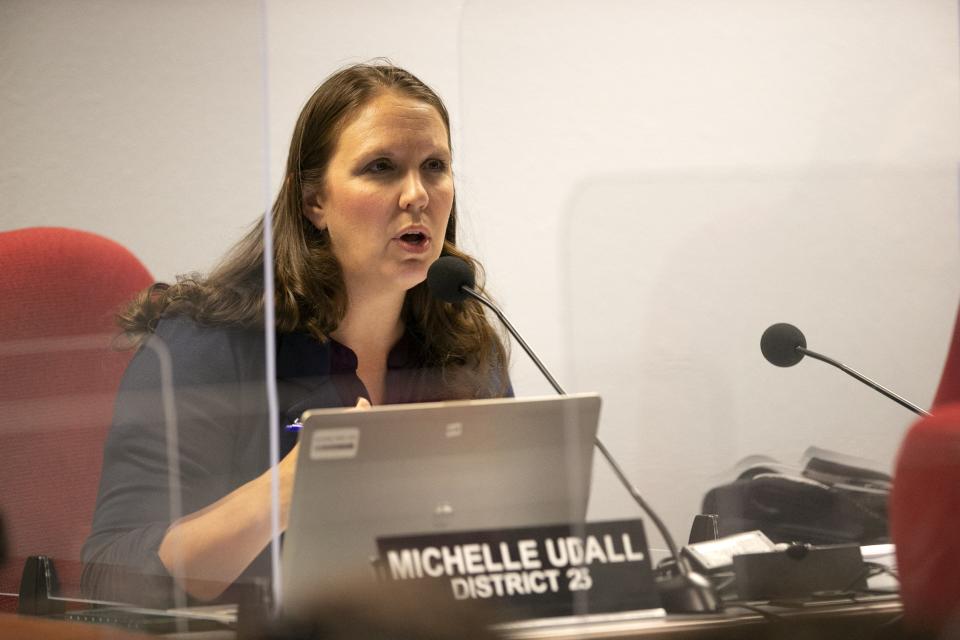Arizona may give more money to education, but there's a problem: Schools can't spend it

Imagine winning a jackpot but being unable to spend it.
That's the prospect Arizona schools face as they look ahead to the next school year.
The jackpot is the potential for a major boost to public education; estimates run from $800-$900 million annually, and permanently, according to parties involved in budget talks at the Capitol.
The stumbling block is not having a way to use it unless lawmakers do something about a constitutional limit on K-12 spending — and legislative leaders have said they're doubtful they'll address what's known as the "aggregate expenditure limit" as the Legislature moves into its final month of work.
If those predictions hold, school districts statewide are certain to see a repeat of this spring's cliffhanger, where lawmakers waited until nearly the last minute to waive the limit for the current school year. The $6.1 billion the Legislature in 2021 gave to schools was $1.2 billion above the constitutional limit, although the law allows for lawmakers to override the limit. Lawmakers did just that in a bipartisan vote that raised the spending limit to match the amount of money they approved last summer.
Many districts said without that vote, a mandatory 16% cut could have led to massive layoffs or even a premature end to the school year.
Those prospects are likely to bubble up again for the coming school year. Even without a major increase to K-12 funding, early estimates indicate schools will exceed the spending limit for the academic year that begins in the fall.

Senate President Karen Fann, R-Prescott, said lawmakers are consumed with other major matters, from crafting a budget to water issues to sorting through a pile of election-related bills.
"We have just not had time to talk about it," she said.
She acknowledged the need for action, and suggested lawmakers might tackle the matter over the summer in advance of next year’s legislative session. She supported this year’s waiver of the expenditure limit and at the time said a permanent fix was needed to end the year-to-year drama.
In the House, Majority Leader Ben Toma, R-Peoria, said he won't touch discussions for raising the limit until the judge overseeing a major school-funding case has signed an order sealing the demise of Proposition 208. The case can't close until the judge rules on a request for attorneys' fees to the lawyers who successfully challenged the ballot measure.
Some lawmakers are ready to act

Despite the dour assessment from legislative leaders, rank-and-file lawmakers said they haven't given up on ending the school-budget drama as they pursue an increase in K-12 funding.
"Karen may not have the bandwidth (to raise the limit), but we do," said Sen. Paul Boyer, R-Glendale and a proponent of a "grand bargain" to use some of the state's $5 billion budget surplus to pay for major education measures.
"If we're adding money, we have to fix the AEL," he said, referring to the constitutional cap's abbreviated name.
By "we," Boyer said he means the 31 votes in the House and the 16 in the Senate needed to approve a state budget. Lawmakers must have a new budget in place before the July 1 start of the fiscal year.
Boyer, chairman of the Senate Education Committee, envisions a long-term fix to the 40-year-old spending limit as part of a larger compromise. Such a deal would link more K-12 funding, an expansion of the state's empowerment scholarship accounts (commonly called vouchers), full university funding and a referral to the ballot of the spending limit, among other things, into an interdependent agreement.

Rep. Michelle Udall, R-Mesa and a candidate for state school superintendent, said there are discussions about asking voters to amend the state Constitution to update the spending limit, which dates from 1980. The school landscape has changed dramatically in the ensuing 40 years with no corresponding change in the limit.
The interest in increasing the K-12 budget comes as a new report from the U.S. Census Bureau bumped Arizona up one notch in the rankings on per-pupil spending, to 47th. Arizona tied with North Carolina, based on year 2000 budgets, the bureau reported.
How lawmakers could fix the issue
A constitutional fix could take various forms: an increase in the ceiling, an exemption for the money from a 0.6% sales tax extension lawmakers approved four years ago, or an end to the limit altogether.
Lawmakers also are exploring a short-term fix: whether they can waive the spending limit for the 2022-23 school year as part of the new state budget, said Udall, who is chairwoman of the House Education Committee.
As president of the Arizona Tax Research Association, Kevin McCarthy has tracked school spending for decades at the Capitol. It's a certainty the spending limit will emerge as an issue early next year.
“We shouldn't pass a (fiscal year) '23 budget pretending that the problem isn't going to come back to visit us in January," he said. But, he said, he'd like to see education advocates come up with a fix for the limit, given these are the groups that agitate for more spending.
Education politics: Bill to make major K-12 education funding changes is approved in less than an hour
Schools hope to avoid déja vu
While ideas percolate at the Legislature, school officials are simultaneously calling for reform of the 1980s-era spending limit and bracing for a repeat of this year's drama.
Lori Garvey, deputy superintendent of the Madison Elementary School District in Phoenix, said the district wants a permanent solution to the uncertainty caused by the expenditure limit, hopefully part of a bigger change to school funding.
Jessica Ebel, a math interventionist in the Prescott Unified School District, said she and her colleagues will focus their "walk-in Wednesdays" in part on the expenditure limit if nothing is done by the time school is back in session.
Earlier this year, when she realized the limit could force a $4.5 million cut on the central Arizona district, she felt worried, demoralized and disrespected, and feared that the district would have to shut down before the end of the year.
So every Wednesday morning this year, Ebel and her colleagues would set their alarms a little earlier than usual, gather their posters, and protest outside Abia Judd Elementary School before the school day started. For the first seven weeks of the year, their focus was pushing lawmakers to raise the expenditure limit, but they also protested a proposed expansion of school vouchers.
In the Phoenix Union High School District, board member Aaron Márquez said the board will have to build next year's budget unsure of what the Legislature will appropriate and without knowing whether there will be a waiver on the spending cap.
"It feels like a game of chicken the Legislature is playing with school districts across the state," said Márquez, who is running as a Democrat for a state House seat.
The spending limit is "archaic," he said and doesn't reflect the realities of Arizona's current school environment, from the major role technology plays in the classroom to the effects of high inflation. It also exempts charter schools, which didn't exist when voters approved the limit in 1980.
The limit, he said, "either needs to be reformed or wiped off the books."
Reach the reporters at maryjo.pitzl@arizonarepublic.com and ykunichoff@arizonarepublic.com and follow then on Twitter @maryjpitzl and @yanazure
Support local journalism. Subscribe to azcentral.com today.
This article originally appeared on Arizona Republic: Arizona schools could hit spending cap again; will lawmakers make fix?

